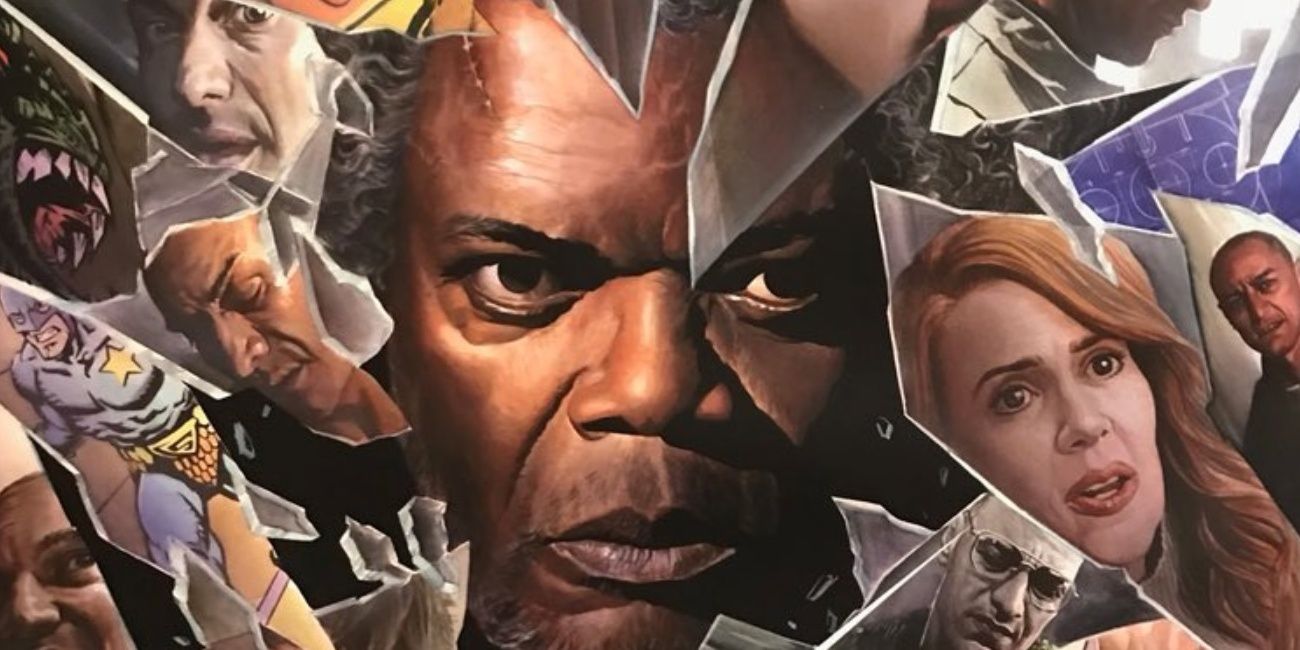When Bruce Willis’ David Dunn showed up at the end of M. Night Shyamalan’s Split in 2016, it was both an exciting connection to Shyamalan’s acclaimed 2000 thriller Unbreakable and a subtle undermining of Split’s effectiveness as a standalone story. Anyone disappointed in the supernatural turns at the end of Split will certainly be frustrated with Glass, the third movie in what’s now a Shyamalan trilogy about superpowered heroes and villains.
But where Split only approached those themes at its very end, Glass openly takes its cues from Unbreakable’s obsession with comic-book lore; in particular, the idea that superheroes represent a sort of ur-myth based in real human experience. In 2000, the idea of taking superheroes and comic books seriously was pretty novel for a major studio film, but in an era when anyone with even a passing knowledge of pop culture is familiar with every superhero cliché and plot device, a movie solemnly deconstructing those concepts is much less appealing.
At tis core, Unbreakable wasn’t just about picking apart elements of superhero stories; it was about David’s struggle to find purpose in his life, to reconnect with his wife and son, and find a reason to get up and face the world each day. After miraculously surviving a train derailment that killed every other passenger, David discovered that he possessed superhuman abilities, including strength and invulnerability, thanks largely to the machinations of the comics-obsessed Elijah Price (Samuel L. Jackson), a genius suffering from a rare condition that makes his bones extremely fragile. The man who called himself Mr. Glass was ultimately revealed as Unbreakable’s villain, sacrificing hundreds of innocent people in his maniacal quest to uncover a real-life superhero.
RELATED REVIEW: Escape Room Is a Surprisingly Enjoyable Thriller
Unbreakable ended with a title card indicating that Mr. Glass had been carted off to an insane asylum, and that’s where he’s been in the 19 years between movies. David, meanwhile, has become the superhero his nemesis always hoped he would be (dubbed “The Overseer” by the local press), running his own security business and enlisting his now-adult son Joseph (Spencer Treat Clark) as a sort of sidekick, or “guy in the chair,” as Spider-Man: Homecoming’s Ned Leeds might put it. That’s what puts David on the trail of Split’s multiple-personality serial killer Kevin Wendell Crumb (James McAvoy), who ended Split by revealing one of his personalities (known as “The Beast”) to be just as preternaturally powerful as David. Having escaped capture at the end of Split, Kevin has now kidnapped another group of teenage girls, and is preparing to feed them to the Beast.
The first 15 minutes or so of Glass, which don’t feature the title character at all and focus instead on the familiar (but suspenseful) superhero face-off between David and Kevin, are excellent, and deliver on the promise of the idea of a Shyamalan crossover movie, even if they lack the emotional power of Unbreakable or the visceral scares of Split. But when both David and Kevin find themselves captive at the same institution housing Mr. Glass, all under the care of psychiatrist Dr. Ellie Staple (Sarah Paulson), the movie pretty much grinds to a halt for an hour. Ellie specializes in the treatment of superhero delusions (which seems like a really niche field), and she tries to convince all three men that they don’t actually have superpowers, but instead are just mentally ill (or, in Kevin’s case, even more mentally ill).
RELATED REVIEW: Replicas Makes No Sense, But It's Somehow, Strangely Watchable
There’s no mystery here, though, since Shyamalan already revealed the truth about the characters and their powers in the previous movies. Instead, it’s just a lot of slow-moving filler putting the characters in place for the twist-filled climax. Both Unbreakable and Split were slow and methodical as well, but they were building to revelations about characters who were inherently mysterious. The only mysterious character here is Ellie, and she exhibits almost no personality traits until the finale, making Paulson a mostly wasted addition to the Unbreakable filmverse. Anya Taylor-Joy is equally squandered as her Split character Casey Cooke, the victim whose connection with Kevin over their shared abusive childhoods allowed her to escape the Beast’s wrath.
The three central performances are still strong, especially McAvoy as Kevin, exhibiting even more personalities than he did in Split, and managing to make each one distinctive and memorable, even if it only surfaces for a few seconds. But Kevin is less scary this time around, removed from the horror trappings of Split and placed into a mostly well-lit, colorful superhero narrative. Still, he’s a menacing and unpredictable antagonist, and a strong counterpart to the cerebral, calculating Mr. Glass.
The story builds to a climactic showdown among the three characters, but Shyamalan undercuts much of the excitement with jarring bits of exposition, hastily introducing major plot elements up to the very end. All the while, Mr. Glass explains how every development parallels an aspect of superhero comic-book storytelling, but the connections come off as forced and superficial. Both Unbreakable and Split managed to hint at grander worlds in their small-scale narratives, but Glass just feels like Shyamalan ran out of resources. It’s an awkward conclusion to a trilogy that started out with great promise, which in a way makes it perfect for the Shyamalan brand.

